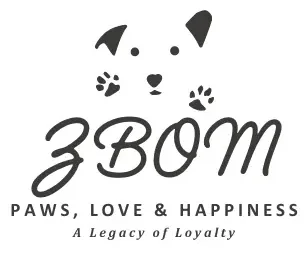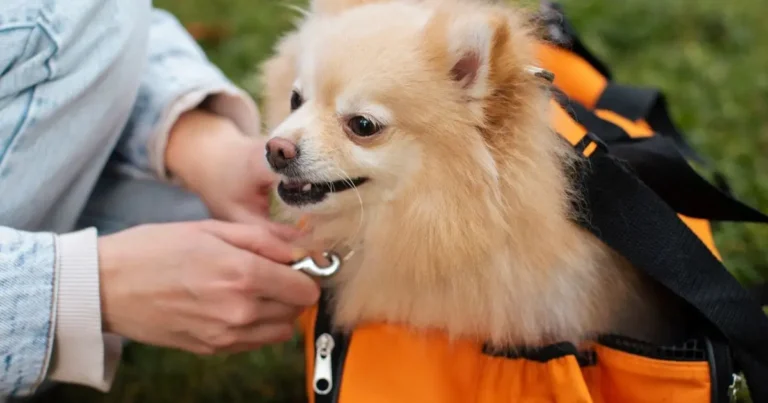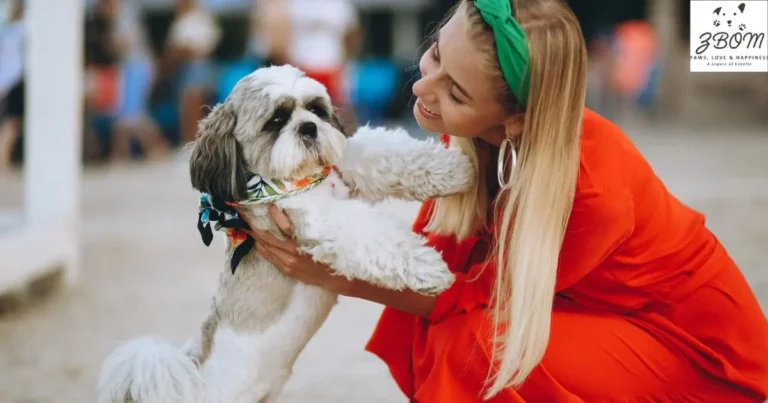
How To Start a Business With Can You Shave a Husky
Picture this: you’re scrolling through pet forums at midnight, and suddenly you see it—the heated debate that never dies. “Can you shave a Husky?”Can You Shave a Husky The arguments fly. The opinions clash. And somewhere in this chaos, you realize there’s an untapped opportunity.
Starting a business around this controversial question isn’t as crazy as it sounds. Pet owners are desperate for reliable information, and Husky parents are among the most passionate—and confused—groups out there. They want answers about grooming,How To Start a Business With Can You Shave a Husky coat care, and whether clippers are friend or foe to their fluffy companions.
The beauty of building a business around “Can you shave a Husky?” is that it opens doors you didn’t know existed. From specialized grooming services to educational content, from cooling products to proper undercoat tools, this single question leads to countless solutions. You’re not just answering a query; you’re solving real problems for people who love their dogs and want to do right by them.
This guide will show you how to transform one burning question into a legitimate business venture. Whether you’re a groomer, content creator, or entrepreneur with a soft spot for double-coated dogs, there’s money to be made in the answers—and the products and services that follow.
Also Read: How old Does a dog have to be to breed
Short answer about: Starting a Dog Grooming Business: The Complete Guide
Starting a dog grooming business involves planning, skill, and a love for animals. Begin by gaining grooming experience or certification, then create a business plan outlining services, pricing, How To Start a Business With Can You Shave a Husky and target customers. Choose a suitable location or offer mobile grooming for convenience. Invest in quality tools, safety equipment, and pet-friendly products. Register your business, get insurance, and follow local regulations. Promote your services through social media, a website, and local advertising. Providing excellent care, cleanliness, and customer service will help build trust and grow your client base successfully.
Starting a Dog Grooming Business: The Complete Guide

Congratulations on taking the first step towards starting a business in the thriving pet care industry! If you’re considering launching your own dog grooming business, How To Start a Business With Can You Shave a Husky you’ve picked the perfect time. American pet owners are more devoted than ever, with pet spending reaching unprecedented levels and industry growth showing no signs of slowing down. The pet care market is expected to surpass $150 billion in 2025, making this an ideal moment for entrepreneurs to enter the grooming industry.
Legal Requirements and Business Licensing
One of the most crucial aspects of the startup process involves handling legal paperwork and obtaining proper licensing. Business licensing requirements vary by location, so understanding your local legal requirements is essential. Business registration is your first official step, establishing your grooming startup as a legitimate entity in the pet care services sector.
Branding Your Grooming Business
Choosing the right business name is critical for your business development. Your business name should reflect your expertise in dog grooming and pet care while appealing to pet owners in your target market. Once you’ve selected your business name, the next step is creating a memorable business logo. Your business logo serves as the visual representation of your brand in the competitive pet market.
Logo Design and Business Strategy
Professional logo design helps distinguish your grooming salon from competitors. Your branding should communicate trust and expertise to pet professionals and pet owners alike. A strong business strategy incorporates consistent branding across all touchpoints, from your storefront to your online presence.
Building Your Grooming Professionals Team
As your business ownership journey progresses, you’ll need to consider staffing. Hiring skilled grooming professionals ensures quality dog services that keep customers returning. Pet professionals with proper training and certification add credibility to your pet care services and help establish your reputation in the grooming industry.
Also Read: How long french bulldog pregnant
Resources for Small Business Success
Our startup guide provides business resources designed specifically for small business owners entering the pet care industry. These business resources cover everything from business planning tools to marketing strategies for reaching pet owners effectively. The startup steps outlined in our guide ensure you build a solid foundation for long-term business success.
Pet Care Services and Market Positioning
Understanding the full spectrum of pet services helps you position your grooming business strategically. While your primary focus is dog grooming, knowing how your services complement other dog care options—including veterinary services—allows you to build valuable partnerships. These relationships can drive referrals and enhance your standing in the pet care market.
Your Comprehensive Guide to Success
This comprehensive guide is designed to eliminate the overwhelm often associated with business formation. We break down complex business fundamentals into manageable startup steps, making the entire startup process accessible even for first-time entrepreneurs. From initial business planning through your business launch and beyond, we’re here to support your business development.
Taking Action in the Pet Care Industry
The pet care industry welcomes passionate individuals ready to provide exceptional grooming services. Your journey from aspiring entrepreneur to successful business ownership begins with proper preparation. By following our startup guide and utilizing available business resources, you’ll navigate legal requirements, business registration, and licensing with confidence.
Understanding the Market and Competition
Before diving into the dog grooming industry, it’s crucial to conduct thorough market research and understand the competitive landscape you’re entering. Dog grooming operates within a highly competitive industry, where established businesses and new startups constantly vie for market share. Success in the grooming market requires more than just skills with scissors and shampoo—it demands deep market understanding and strategic business planning.
Conducting Local Market Research
Effective market research begins in your own backyard. The local market holds the answers to critical questions about service demand, pricing strategy,How To Start a Business With Can You Shave a Husky and customer needs. Start your market study by visiting local dog grooming businesses in your area. Observe their operations, note their service offerings, and pay attention to how they interact with pet owners. This firsthand competitor research provides invaluable market intelligence about the business environment you’ll be operating in.
Local market analysis reveals patterns in market demand that online research alone cannot capture. Notice which dog grooming services are most popular, what add-ons customers frequently request, and how local businesses handle pricing. This market evaluation helps you understand market conditions and identify gaps in service offerings that represent your competitive edge.
Also Read: How many pupppies do french bulldog have
Leveraging Business Peers and Industry Networks
One of your most valuable resources for market understanding comes from connecting with business peers who already operate in the grooming industry. Facebook groups like the Pro Groomer Network offer direct access to experienced professionals who understand the competitive landscape from the inside. These online communities provide market trends information, discuss pricing strategy challenges, and share insights about market positioning.
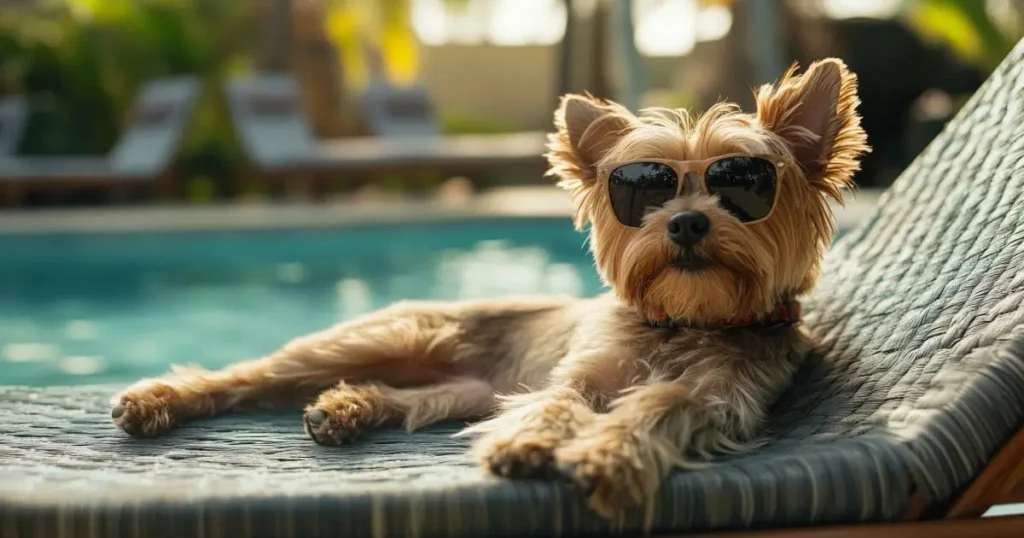
Engaging with the Pro Groomer Network and similar Facebook groups accelerates your business research by connecting you with groomers who’ve navigated the same competitive market you’re entering. Business peers can offer guidance on service differentiation, share their experiences with local competition, and provide honest feedback about market opportunities versus market saturation in different areas.
Understanding Pet Owners and Customer Needs
Your business success ultimately depends on understanding pet owners and their customer needs. Speaking directly with pet owners provides qualitative data that complements your quantitative market analysis. Ask pet owners about their experiences with current local dog grooming businesses, what services they wish were available, and what factors influence their choice of groomer.
This customer research reveals your target audience’s priorities and pain points. Some pet owners prioritize convenience and location, while others focus on specialized services or add-ons for their specific breeds. Understanding these customer needs allows you to tailor your service offerings and develop a unique selling proposition that resonates with your target market.
Online Market Research and Industry Intelligence
While face-to-face competitor research is invaluable, online market research expands your market intelligence beyond your immediate local market. Industry research websites, pet industry reports, and grooming industry publications provide data on market trends, pricing benchmarks, and emerging service demand patterns.
Online market research helps you understand the broader business environment affecting the competitive industry. National market trends often predict local market conditions, and staying informed about industry competition helps you anticipate changes before they impact your local businesses. This market study approach combines both macro industry research and micro local market analysis for comprehensive business planning.
Creating Your Strategic Business Plan
All your market research, competitor analysis, and customer research should feed into a comprehensive business plan. Your business plan must clearly define your target market—the specific segment of pet owners you’ll serve. Will you focus on luxury grooming services, budget-friendly options, or specialize in certain breeds or add-ons?
Your business plan should detail your service offerings and explain your service differentiation strategy. What makes your dog grooming services different from competitors? Your unique selling proposition might be specialty services, superior customer service, convenient mobile grooming, or expertise with specific breeds. Whatever your competitive advantage, articulate it clearly in your business planning documents.
Pricing strategy represents one of your most critical business strategy decisions. Your market evaluation should reveal the competitive landscape for service pricing in your local market. Analyze what local dog grooming businesses charge for comparable services and add-ons, but don’t simply match their pricing without considering your business positioning.
Your pricing must reflect your market positioning while remaining competitive with grooming competitors. If you’re positioning yourself as a premium service with specialized add-ons and exceptional care, How To Start a Business With Can You Shave a Husky your pricing strategy should support that image. Conversely, if your competitive advantage lies in affordability and efficiency, your service pricing needs to reflect that market positioning.
Competitive Analysis and Market Positioning
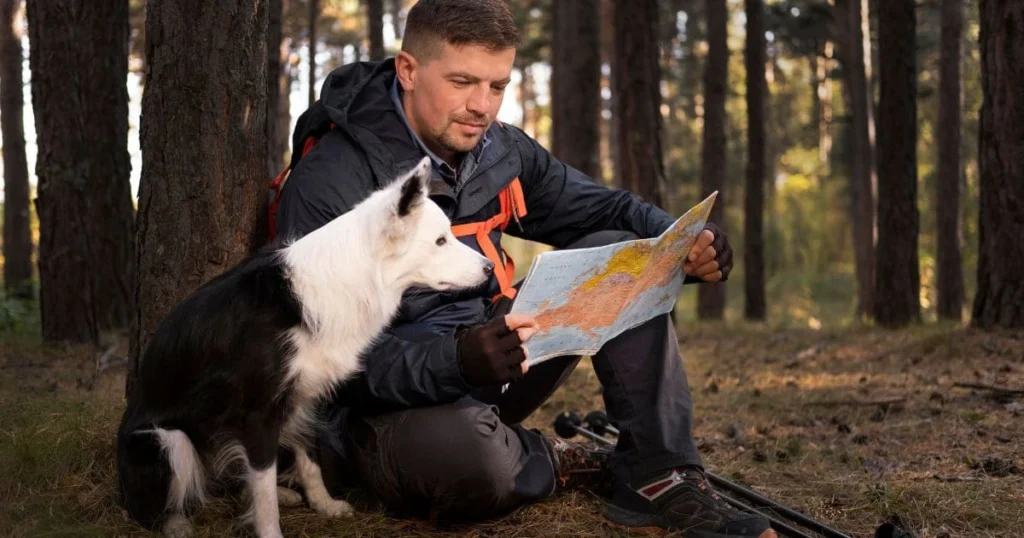
Thorough competitive analysis examines not just what your business competitors charge, but how they position themselves in the grooming market. Study their marketing messages, their service differentiation tactics, and their target audience. This competitor research reveals opportunities for business differentiation that others have overlooked.
Also Read: How to Determine Frenchie Stud Fee Effectively
Market positioning isn’t about being everything to everyone—it’s about owning a specific space in the competitive market. Your competitive positioning should address unmet customer needs or serve an underserved target market. Perhaps established businesses in your area focus mainly on small breeds, creating an opportunity for you to specialize in large breed grooming services.
Understanding Market Demand and Service Offerings
Market demand varies by location, season, and demographic factors. Your market study should identify which dog grooming services experience consistent demand year-round versus seasonal services. Understanding service demand patterns helps you plan staffing, inventory, How To Start a Business With Can You Shave a Husky and marketing efforts.
Consider which add-ons represent growth opportunities in your local market. De-shedding treatments, teeth brushing, nail grinding, creative grooming, and specialty shampoos are examples of add-ons that can increase revenue per appointment. Market analysis should reveal which add-ons resonate with your target audience and justify investment in training and supplies.
Evaluating Market Conditions and Business Environment
The business environment extends beyond direct grooming competitors to include economic conditions, demographic trends, and pet ownership patterns in your local market. Market conditions like population growth, average household income, and pet ownership rates all affect market opportunities for dog grooming services.
Local market analysis should also consider proximity to complementary local businesses like veterinary clinics, pet stores, and dog parks. These relationships can provide referral opportunities and enhance your competitive advantage through strategic partnerships within the pet industry.
Monitoring Market Trends and Competitive Market Evolution
The grooming industry constantly evolves as market trends shift and customer needs change. Staying current with industry research ensures your business strategy adapts to changing market conditions. New grooming techniques, products, and add-ons regularly enter the grooming market, and early adoption can provide temporary competitive positioning advantages.
Market trends also reflect broader shifts in the pet industry, such as increased demand for organic products, fear-free handling techniques, or specialized services for senior dogs. Your ongoing competitor research and market intelligence gathering should identify these market trends early so you can adjust your service offerings accordingly.
Leveraging Market Intelligence for Business Success
All the market research, competitive analysis, and customer research you conduct serves one purpose: informing better business decisions. Market intelligence isn’t valuable in isolation—it’s valuable when it shapes your business planning, pricing strategy, service differentiation, and market positioning.
Your understanding of the competitive landscape should evolve continuously. Regular competitor analysis, ongoing conversations with business peers in Facebook groups like Pro Groomer Network, Can You Shave a Husky and persistent customer research keep your market understanding current. The competitive industry you’re entering today will look different next year, and successful businesses adapt their business strategy accordingly.
Taking Action on Your Market Research
Armed with comprehensive market analysis and clear understanding of your competitive advantage, you’re ready to finalize your business plan. Your plan should demonstrate how you’ll compete with other dog grooming businesses in your area, clearly articulate your target market, outline your service offerings including strategic add-ons, and present a competitive pricing strategy.
Also Read: When can dog get females pregnanat
Remember that established businesses once stood where you stand now. They succeeded by understanding their local market, identifying their unique selling proposition, and consistently delivering value to pet owners. Your thorough market evaluation, detailed competitor research, and strategic business planning position you to do the same.
The competitive market may seem daunting, but market opportunities exist for startups that bring genuine business differentiation to their local competition. Your competitive edge lies in your unique combination of skills, market positioning, service demand understanding, and commitment to meeting customer needs better than existing grooming competitors.
Start your journey with confidence, knowing that your market intelligence and strategic business planning give you the foundation for success in the competitive industry of dog grooming. How To Start a Business With Can You Shave a Husky The local market is ready for businesses that truly understand their target audience and deliver exceptional dog grooming services with clear service differentiation.
Create a Dog Grooming Business Plan
Selecting the right business name represents a critical early decision when launching your dog grooming business. Your business name serves as your business identity in the marketplace and plays a fundamental role in business branding efforts. The name you choose should be unique, memorable, and easy to spell—qualities that help customers find you, remember you, and recommend you to others.
The Importance of a Strong Business Name
Your business name is more than just words on a sign; it’s the foundation of your brand name and business identity. A unique business name helps you stand out among competitors, while a memorable name ensures customers can recall your business when they need grooming services. Equally important, your business name should be easy to spell so customers can find you online and share your name without confusion.
When developing naming considerations for your new dog grooming business, think about how the name will appear across all touchpoints—signage, website, social media,How To Start a Business With Can You Shave a Husky business cards, and advertising. Your business branding strategy begins with this fundamental choice, making thoughtful selection essential for long-term success.
Understanding Business Formation and Legal Entity Options
Beyond choosing your business name, Can You Shave a Husky you must address critical business formation decisions by selecting an appropriate legal structure for your new dog grooming business. The entity type you choose affects your liability protection, tax obligations, administrative requirements, and overall legal framework for operations. This business registration decision has lasting implications for your business ownership experience and financial security.
Registering your business as a legal entity provides important legal protection and establishes a formal legal distinction between you personally and your business operations. Understanding your structural options and the characteristics of each business entity type helps you make informed decisions about the best business form for your situation.
Limited Liability Company (LLC): Flexible Protection for Owners
A Limited Liability Company, commonly known as an LLC, How To Start a Business With Can You Shave a Husky represents one of the most popular business structure choices for dog grooming business owners. This entity type offers significant advantages in terms of liability protection and operational flexibility while maintaining relatively simple administrative requirements.
The primary benefit of an LLC business structure is that it protects owners from being personally responsible for the business debts and liabilities of the business. This liability protection means your personal assets—your home, car, savings, and other property—receive asset protection and generally cannot be seized to satisfy business debts or legal judgments against the business.
An LLC combines characteristics of both a corporation and either a partnership or sole proprietorship, creating a hybrid business entity that offers the liability arrangements typically associated with corporations while maintaining the tax treatment and operational simplicity of partnerships or sole proprietorships. This unique ownership structure makes the LLC an attractive entity selection for many new dog grooming business owners.
It’s important to note that the LLC business structure is only available in the United States. The specific rules governing LLC formation, operations, and taxation vary by state, making legal advice valuable when considering this business type. An LLC can be owned by a single individual or two or more individuals, providing flexibility in ownership model regardless of whether you’re starting alone or with partners.
The LLC legal entity provides legal distinction between the owner and business, How To Start a Business With Can You Shave a Husky creating a separate business entity that enters contracts, owns property, and conducts business independently from its owners. This separation is fundamental to the debt protection and personal liability limitations that make the LLC attractive.
Also Read: How much are fluffy french bulldog
Corporation: Formal Structure for Business Ownership
A corporation represents a more formal business structure that operates as a single legal entity made up of a group of individuals. When you establish a corporation,Can You Shave a Husky you create a business entity completely separate from its owners, with its own legal rights and responsibilities. This complete legal distinction between owner and business provides strong liability protection.

The corporation business structure protects owners—called shareholders—from personal liability for business debts and liabilities in most circumstances. This means shareholders’ personal assets enjoy asset protection similar to what an LLC provides, though the corporation achieves this through a more rigid legal framework and business organization structure.
Corporations involve more complex business formation requirements than other entity types. The incorporation process requires filing articles of incorporation, creating bylaws, issuing stock certificates, holding regular board meetings, and maintaining detailed corporate records. These administrative requirements make the corporation business type more demanding in terms of ongoing business organization compliance.
However, for some dog grooming business owners planning significant growth or seeking outside business ownership through investors, the corporation legal structure offers advantages. The corporate ownership structure facilitates raising capital through stock sales and provides a clear legal framework for adding multiple owners with different levels of investment and control.
The characteristics of corporations include perpetual existence (the business entity continues even if owners change), transferable ownership through stock sales, and established legal precedents governing operations. These features make the corporation a solid choice for those with ambitious long-term plans, though many starting a new dog grooming business find simpler structural options more appropriate initially.
Sole Proprietorship: Simplest Business Form
A sole proprietorship represents the simplest business structure available and is the default legal entity for any business owned and run by a single individual without formal business registration as another entity type. In a sole proprietorship, there is no legal distinction between the owner and the business—they are considered the same entity for legal and tax purposes.
This business type requires minimal business formation steps. Simply choosing a business name and beginning operations establishes a sole proprietorship, How To Start a Business With Can You Shave a Husky though you may need to register your business name and obtain necessary licenses and permits. The simplicity of this ownership model makes it appealing for those just starting their dog grooming business journey.
Also Read: How much is a frenchie
However, the sole proprietorship business structure provides no liability protection. The owner remains personally responsible for all business debts and liabilities. This means your personal assets have no asset protection from business-related claims. If someone sues your business or you cannot pay business debts, creditors can pursue your personal property, savings, and other assets.
The absence of legal distinction between owner and business creates significant personal liability risk. Any debt protection you might want requires purchasing appropriate insurance rather than relying on your business structure for liability arrangements. For this reason, many business advisors recommend against the sole proprietorship for businesses with significant liability exposure, including dog grooming businesses where animals could be injured or property damaged.
Despite these personal liability concerns, some choose the sole proprietorship initially due to its simplicity and low startup costs. If you select this business form, understanding your legal protection limitations is essential, and securing comprehensive business insurance becomes even more critical for debt protection.
Partnership: Shared Business Ownership
A partnership is a business owned by two or more individuals who share business ownership, responsibilities, and financial outcomes. This business structure suits situations where multiple people want to collaborate in starting and running a dog grooming business together.
Partnerships come with different arrangements for sharing liability and sharing profits among partners. The specific liability arrangements and profit sharing formula should be documented in a partnership agreement that clearly defines each partner’s contributions, How To Start a Business With Can You Shave a Husky responsibilities, decision-making authority, and financial interests.
The most common partnership types include general partnerships and limited partnerships, each with different characteristics regarding personal liability and management involvement. In a general partnership, all partners typically share management responsibilities and remain personally responsible for business debts and liabilities. This means partners face personal liability similar to sole proprietors, with personal assets at risk for business debts.
Limited partnerships create different classes of partners: general partners who manage operations and face personal liability, and limited partners who invest capital but have limited involvement in management and limited liability protection. These varied liability arrangements provide flexibility in structuring business ownership to meet different partners’ needs and risk tolerances.
Also Read: How To Determine Black French Bulldog Cost
Like sole proprietorships, partnerships generally provide limited asset protection unless structured as a limited liability partnership (LLP) or by forming a partnership within an LLC structure. The profit sharing and liability arrangements make partnership agreements essential for preventing disputes and protecting all partners’ interests.
When two or more individuals plan to launch a new dog grooming business together, the partnership ownership structure offers a straightforward path forward, though many partnership groups ultimately choose to form an LLC to gain liability protection while maintaining their collaborative ownership model.
Key Characteristics Affecting Entity Selection
Understanding the characteristics of each business structure helps guide your entity selection decision. Each business type offers different balances of liability protection, administrative complexity, tax treatment, and operational flexibility.
The legal entity you choose establishes the legal framework within which your dog grooming business operates. This business organization decision affects how you file taxes,How To Start a Business With Can You Shave a Husky what records you must maintain, how you can raise capital, and critically, your exposure to personal liability for business debts.
Liability protection—specifically protecting personal assets from business debts and liabilities—represents perhaps the most important consideration for many owners. The degree of legal protection varies significantly across business structure options, with sole proprietorships offering none and corporations or LLCs providing substantial separation between owner and business.
Your ownership structure needs also influence entity type selection. Are you operating alone as a single individual or with partners (two or more individuals)? Do you anticipate adding business ownership interests for investors? Different business entity types accommodate different ownership models with varying ease.
The legal distinction between owner and business provides important benefits beyond liability arrangements. A separate legal entity can build its own credit history, own property in its own name, and exist independently of any individual owner. This separation becomes increasingly valuable as your business grows.
Seeking Legal Advice for Your New Dog Grooming Business
Given the complexity of business formation decisions and their lasting impact on your business ownership experience, seeking professional advice from qualified experts is highly recommended. The right legal structure for your specific situation depends on numerous factors including your personal financial situation, business plans, risk tolerance, and state laws.
Also Read: How to Determine Frenchie Dog Prices Effectively
Legal advice from an experienced business lawyer helps you understand how different structural options affect your particular circumstances. An attorney consultation provides opportunity to ask questions specific to your new dog grooming business and receive legal guidance tailored to your needs rather than generic information.
Legal counsel can explain the nuances of each entity type as they apply in your state, since business formation requirements and legal protections vary by jurisdiction. A business lawyer can also help with the actual business registration process, ensuring all necessary paperwork is properly completed and filed.
Beyond entity selection, legal advice proves valuable for other legal considerations including contract reviews, lease negotiations, employment agreements, and liability insurance requirements. Establishing a relationship with legal counsel early in your business formation process provides access to professional guidance as various legal framework questions arise.
Some owners also seek professional advice from accountants or business advisors who can explain the tax implications of different business structure choices. Tax treatment varies significantly across entity types, affecting both your annual tax obligations and long-term financial outcomes.
Making Your Entity Selection Decision
When considering your business options for structuring your new dog grooming business, weigh the trade-offs between administrative simplicity and liability protection. How To Start a Business With Can You Shave a Husky A sole proprietorship or partnership offers straightforward business formation but leaves you personally responsible for business debts. An LLC or corporation requires more business registration steps and ongoing compliance but provides crucial asset protection.
Your business type selection should align with your risk assessment. Dog grooming businesses work with animals that can be unpredictable, expensive equipment that could cause injury if misused, and chemicals that require careful handling. These factors create potential liability exposure that makes the debt protection offered by an LLC or corporation particularly valuable.
Consider your long-term vision when making entity selection decisions. While you might start as a single individual operating one location, How To Start a Business With Can You Shave a Husky if you envision growing into multiple locations with employees and significant equipment investments, choosing a legal structure that provides liability protection and accommodates growth makes sense from the start.
The entity type you select affects not just legal protection but also your business identity and business branding efforts. Your legal entity designation (LLC, Inc., etc.) becomes part of your official business name and communicates professionalism to customers, vendors, and lenders.
Also Read: How I Got Started with Full Breed French Bulldog Price
Business Registration and Creating Your Legal Entity
Once you’ve made your entity selection with guidance from legal advice, the business registration process begins. Registering your business as a legal entity involves filing appropriate documents with your state government, typically through the Secretary of State’s office or similar agency.
The specific business formation steps depend on your chosen business structure. Forming an LLC requires filing articles of organization and creating an operating agreement. Incorporation involves filing articles of incorporation and creating corporate bylaws. These documents establish your legal entity and define its ownership structure, management arrangements, and operational rules.
Business registration also includes obtaining an Employer Identification Number (EIN) from the IRS, which functions as a social security number for your business entity. Even if you don’t initially have employees, an EIN is required for most legal entities and useful for separating business and personal finances.
Your business name registration is part of the business formation process. The business name you’ve carefully selected must be available in your state and compliant with naming rules for your chosen entity type. Many states require LLC names to include “Limited Liability Company” or “LLC,” while corporations must include “Corporation,” “Incorporated,” or abbreviations like “Corp.” or “Inc.”
Protecting Your Business Identity Through Proper Structure
Your chosen business structure and registered business name work together to establish your business identity in the legal and commercial marketplace. This business identity affects your business branding, credibility with customers, relationships with vendors, and ability to secure business funding.
Registering as a legal entity demonstrates commitment and professionalism. Customers, suppliers, and lenders often view registered business entities more favorably than unregistered sole proprietorships. Your business entity status signals that you’re serious about building a lasting business rather than just trying something temporarily.
The legal framework provided by proper business organization creates foundation for growth. As your dog grooming business expands, the business structure you established initially will either support or hinder that growth. Choosing wisely now, with benefit of legal advice, prevents costly restructuring later.
Also Read: How to Estimate Long Haired French Bulldog Cost
Final Considerations for Your Business Structure Decision
Selecting your business name and entity type represents just the beginning of building your dog grooming business, but these foundational decisions deserve careful consideration. How To Start a Business With Can You Shave a Husky Your business name should be unique, memorable, and easy to spell, supporting all future business branding efforts and serving as your business identity.
Your business structure decision—whether you choose a Limited Liability Company (LLC), corporation, sole proprietorship, or partnership—affects your liability protection, business ownership experience, and legal framework for operations. Each business entity option offers different characteristics regarding how owners are personally responsible for business debts, what legal distinction exists between owner and business, and what arrangements apply for sharing liability and sharing profits.
For most starting a new dog grooming business, the LLC business structure provides an ideal balance of liability protection and simplicity. It protects personal assets through its liability arrangements while avoiding the complexity of corporation administration. However, your specific situation may suggest a different entity selection, which is why seeking legal advice remains so important.
Whether you’re planning business ownership as a single individual or with two or more individuals, whether you need maximum asset protection or prefer operational simplicity, there’s a business type suited to your needs. Investing time in understanding your structural options, consulting with legal counsel or a business lawyer for professional guidance, and making informed decisions about business formation sets your new dog grooming business on a path toward lasting success.
Your business name and legal entity together create the foundation for everything that follows. Choose both carefully, seek appropriate legal advice, How To Start a Business With Can You Shave a Husky and ensure your business registration properly establishes the legal protection and business identity you need for confident growth.
Federal Level Requirements and Regulations
At the federal level, most dog grooming business owners need to address several key regulatory requirements to legally operate. The primary federal requirement involves obtaining an Employer Identification Number, commonly called an EIN, from the Internal Revenue Service (IRS). This EIN serves essential tax purposes and functions as your business’s identification number for all federal tax matters.
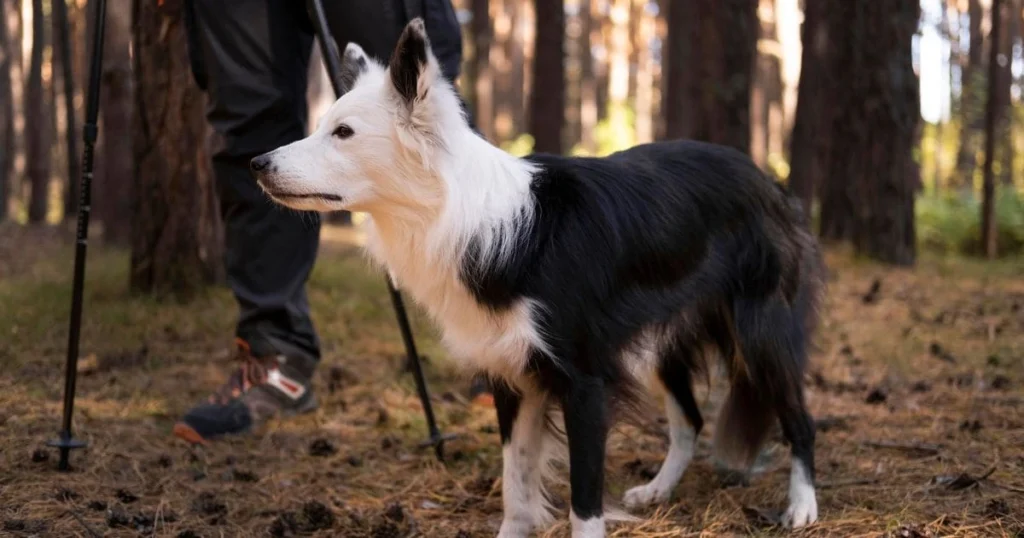
The Employer Identification Number is required if you plan to hire employees for your dog grooming business. Even if you initially operate solo, obtaining an EIN proves beneficial for separating business and personal finances, opening business bank accounts, and establishing business credit. The Internal Revenue Service provides straightforward processes for obtaining your EIN, which you’ll use throughout your business operations for tax purposes.
Also Read: How to Determine the Price of an Isabella French Bulldog
While federal regulations for dog grooming businesses are relatively limited compared to state and local requirements, understanding your federal tax obligations and maintaining compliance with IRS requirements remains essential. How To Start a Business With Can You Shave a Husky The federal level regulatory framework establishes baseline standards that apply across all states, though most specific operating permits and licensing requirements come from state and local authorities.
State Level Licensing and Certification Requirements
At the state level, regulatory requirements become more specific and varied. Each state establishes its own framework of state regulations governing dog grooming businesses, making it essential to research the specific requirements in your jurisdiction. Most states require obtaining a general business license as a foundational step to legally operate any commercial enterprise.
Beyond the basic business license, many states have implemented specific licensing requirements for dog groomers themselves. State licensing for professional grooming may require dog groomers to become licensed through a formal certification process. This professional licensing often involves passing an exam that tests knowledge of animal care, safe grooming techniques, breed-specific grooming requirements, and proper care and handling of animals.
Some states mandate specific hours of training before groomers can become licensed and legally operate. These training requirements ensure that groomers trained under approved programs possess necessary skills to provide safe grooming and professional grooming services. The hours of training required vary by state, with some requiring extensive apprenticeships while others accept completion of recognized grooming certification programs.
State level requirements may also include registration of your business entity, which establishes your legal right to operate within that state’s jurisdiction. This registration process through your state’s business registration office formalizes your business structure and ensures compliance with state regulations governing business operations.
The zoning laws in your jurisdiction determine where you can legally operate your grooming business. Some residential areas prohibit commercial operations entirely, while mixed-use zones may allow certain business types with restrictions. Understanding local land use regulations before signing a lease or purchasing property prevents costly mistakes and ensures business compliance from the start.
Also Read: How to Find Reputable French Bulldog breeders Michigan
Obtaining a zoning permit typically requires submitting documentation to your local government, often including a detailed floor plan showing your facility layout, equipment placement, and customer flow. This floor plan demonstrates how your space will be used and helps officials verify compliance with building codes, accessibility requirements, and safety standards.
Business License Requirements
A business license serves as the fundamental business authorization required by most cities and states to operate any business within their jurisdiction. This general operating permit establishes your legal right to conduct business activities in a specific location. How To Start a Business With Can You Shave a Husky The requirements and fees for obtaining a business license vary considerably depending on your location and type of business.
Each jurisdiction sets its own fee structure for business licenses, with costs ranging from minimal amounts in smaller municipalities to substantial fees in major cities. Some locations calculate fees based on projected revenue, number of employees, or square footage of your facility. Research the specific requirements in your area by contacting your local government’s business registration office.
The license application process for a business license typically requires providing information about your business structure, ownership, location, and planned activities. Processing times vary, so submit your license application well before your intended opening date to avoid delays. Most jurisdictions require business license renewal annually or biennially, with ongoing fees to maintain your operating permits.
Sales Tax License for Retail Operations
If your dog grooming business will sell retail products alongside grooming services, you’ll need a sales tax license. This license authorizes your business to collect sales tax from customers on retail sales of items like grooming supplies, pet accessories, shampoos, brushes, toys, and other products.
A sales tax license is required because businesses must collect sales tax on behalf of the state and remit sales tax payments to state tax authorities on a regular schedule. Without this license, selling retail products violates state regulations and exposes your business to significant penalties.
The process for obtaining a sales tax license varies by state, but typically involves registering with your state’s department of revenue or taxation. Once licensed, you’ll receive instructions on how to collect sales tax at the appropriate rate, maintain required records, and remit sales tax payments monthly, quarterly, or annually depending on your sales volume.
Understanding which transactions require collecting sales tax is essential for compliance. Generally, retail sales of physical goods require sales tax, while services often do not, though this varies by state. Some states tax grooming services themselves, while others only tax retail products. Research your specific state regulations to ensure proper business compliance.
Zoning Permit and Land Use Compliance
A zoning permit represents a critical business authorization that confirms your dog grooming business operates in an appropriate location according to local land use regulations. How To Start a Business With Can You Shave a Husky This permit verifies that your chosen location falls within a commercially zoned area suitable for your type of business activities.
Zoning laws serve multiple purposes, including protecting residential areas from commercial intrusions, ensuring adequate parking and infrastructure, and maintaining community character. Your business must demonstrate compliance with all applicable zoning laws to receive approval for operations.
The permit application for a zoning permit typically requires submitting detailed plans about your business operations. A floor plan showing your facility layout is usually required, illustrating grooming stations, bathing areas, waiting areas, retail space, and utility areas. This floor plan helps zoning officials verify that your use complies with restrictions on the space.
Most jurisdictions also require proof of liability insurance as part of the zoning permit process. Liability insurance protects both your business and the community by providing coverage if accidents, injuries, or property damage occur. The required coverage amounts vary by jurisdiction, but substantial limits are typically mandated for businesses providing animal care services.
Local land use regulations may impose additional requirements beyond basic zoning compliance, such as limitations on signage, hours of operation, noise levels, waste disposal, and parking availability. Review all local ordinances affecting your type of business to ensure full regulatory compliance.
Animal Care License and Professional Standards
An animal care license represents perhaps the most critical specialized permit for businesses that provide care for animals like dog grooming operations. This license verifies that your business meets specific standards for the care and handling of animals and ensures safe, professional treatment of pets in your facility.
Requirements for an animal care license vary by jurisdiction but generally involve demonstrating that your facility meets minimum standards for animal welfare. Inspectors may evaluate your grooming equipment, bathing facilities, ventilation, sanitation procedures, animal restraint methods, and emergency protocols to ensure safe grooming practices.
The animal care license process often requires proving that groomers working in your business are qualified groomers who have completed appropriate training. How To Start a Business With Can You Shave a Husky Some jurisdictions require all groomers to hold individual professional licensing or grooming certification, while others allow businesses to employ unlicensed groomers under supervision of licensed professionals.
Standards established by animal care licensing requirements ensure that businesses provide professional grooming services meeting community expectations for animal welfare. These standards may address proper handling techniques, recognition of health issues, appropriate grooming tools and products, sanitation between clients, and protocols for managing difficult or aggressive animals.
Demonstrating that your team includes groomers trained in proper animal care techniques is essential for obtaining and maintaining your animal care license. Documentation of completed training, professional certification, or occupational licensing for each groomer may be required during the license application process and renewal periods.
Understanding Jurisdiction-Specific Requirements
One of the greatest challenges in achieving business compliance involves navigating the varying requirements across different jurisdictions. What’s required to legally operate in one state or municipality may differ substantially from requirements in another location. This variation in licensing requirements, permit requirements, and regulatory requirements demands thorough research specific to your intended business location.
Jurisdiction determines which government regulations apply to your dog grooming business. Federal regulations apply universally across the United States, but state regulations vary significantly from state to state. Within each state, local regulations differ between cities, counties, and municipalities, creating a complex web of compliance obligations.
The fees associated with various licenses and permits also vary dramatically by jurisdiction. Some locations charge minimal amounts for basic business permits, How To Start a Business With Can You Shave a Husky while others impose substantial costs for the same authorizations. When budgeting for your startup costs, research the specific fees in your jurisdiction to avoid surprises.
Requirements Based on Business Type and Services
Your specific type of business activities and services offered influence which licenses and permits you need. A mobile grooming business may face different regulatory requirements than a fixed-location salon. A business offering only basic bathing and nail trimming might have different certification requirements than one providing full grooming services including breed-specific cuts.
If you plan to hire employees, additional regulatory requirements come into play beyond the basic Employer Identification Number. You’ll need to comply with employment laws, obtain workers’ compensation insurance, register with state employment agencies, and maintain compliance with wage and hour regulations. These requirements add complexity to business compliance efforts but are essential for legally operating with staff.
The type of business structure you’ve chosen—LLC, corporation, sole proprietorship, or partnership—also affects some licensing and registration requirements. Corporations and LLCs typically have more formal registration requirements at the state level than sole proprietorships, though all business types need appropriate operating permits.
Researching Your Specific Regulatory Requirements
Given the complexity and variation in licensing requirements across different jurisdictions, thorough research is essential before starting your dog grooming business. Understanding exactly which licenses, permits, and certifications you need prevents delays, How To Start a Business With Can You Shave a Husky ensures business compliance, and protects you from operating illegally.
The Small Business Administration (SBA) provides valuable resources for understanding federal regulations and connecting with local resources. The SBA offers guidance on navigating regulatory requirements, compliance issues, and government regulations affecting small businesses. Their website includes state-by-state information and links to local business registration office contacts.
Professional Licensing and Groomer Certification
In states requiring professional licensing for dog groomers, understanding the certification process is crucial for business compliance. Professional licensing typically involves demonstrating competency through a combination of training, experience, and examination. This occupational licensing ensures that individuals providing grooming services meet minimum professional standards.
Some states require dog groomers to pass a licensing exam testing knowledge of animal care, grooming techniques, breed standards, safety procedures, and recognition of health issues. How To Start a Business With Can You Shave a Husky These exams verify that licensed groomers possess the theoretical knowledge necessary for safe grooming and professional animal care.
Hours of training may be required before groomers can take licensing exams or apply for certification. States with training requirements typically specify minimum hours of hands-on experience or completion of approved grooming education programs. These training mandates ensure groomers trained in practical skills, not just theoretical knowledge.
Grooming certification from recognized professional organizations may satisfy state requirements in some jurisdictions. National grooming associations offer professional certification programs that test skills and knowledge comprehensively. Some states accept these credentials as equivalent to state licensing, simplifying the regulatory compliance process.
Professional certification often requires continuing education to maintain active status. These ongoing education requirements ensure certified groomers stay current with evolving techniques, How To Start a Business With Can You Shave a Husky products, and animal care standards. Continuing education may involve attending conferences, completing online courses, or participating in hands-on workshops.
Working with the Small Business Administration
The Small Business Administration (SBA) serves as an invaluable resource for understanding the regulatory landscape and achieving business compliance. The SBA provides free counseling, educational resources, and connections to local assistance programs that help navigate licensing requirements and government regulations.
SBA district offices exist throughout the United States, with counselors who understand regional regulatory requirements and can guide you through the specific regulations affecting your jurisdiction. These counselors help interpret complex requirements and connect you with appropriate state and local government contacts.
The SBA website offers comprehensive information about federal regulations, links to state business registration offices, and resources for understanding licensing requirements in different locations. Their online tools help entrepreneurs identify which licenses and permits they need based on their location and type of business.
Creating Your Compliance Checklist
Developing a comprehensive compliance checklist ensures you obtain all necessary licenses and permits before launching operations. Your checklist should include federal level requirements like your Employer Identification Number, state level items including business licenses and any professional licensing requirements, and local regulations including zoning permits and municipal permits.
Research each requirement thoroughly, noting specific fees, application processes, required documentation, and processing times. Some permits depend on others being completed first, How To Start a Business With Can You Shave a Husky so understanding the proper sequence prevents delays. For example, you typically need your business license before applying for specialized permits like animal care licenses.
Allow adequate time for the permit application and license application processes. Some authorities issue approvals within days, while others may take weeks or months. Submit applications well before your planned opening date to avoid costly delays in launching your successful business.
Professional Resources and Industry Associations
Industry associations provide valuable resources for understanding regulatory requirements and maintaining compliance. Professional grooming organizations often offer guidance on state licensing requirements, professional certification programs, and changes in regulations affecting dog grooming businesses.
Networking with other dog grooming business owners through industry associations helps you learn about practical compliance challenges and solutions. Experienced groomers can share insights about working with local government officials, preparing for inspections, and maintaining compliance with animal care standards.
The Path to Legal Operations
Successfully navigating the complex landscape of licenses and permits in the United States requires diligence, research, and attention to detail. From federal regulations like obtaining your Employer Identification Number for tax purposes through state level requirements for business licenses and professional certification, to local regulations including zoning permits and compliance with local land use regulations, each layer adds essential legal authorization for your operations.
conculsion
Starting a business focused on Husky grooming, especially when it comes to the delicate topic of shaving, requires both knowledge and responsibility. Huskies are beautiful double-coated dogs that need proper coat care, not just for appearance but for their health and comfort.
Understanding that shaving a Husky is not usually recommended—because their coat protects them from both heat and cold—is essential before offering any related grooming services. Instead, the business can focus on educating pet owners about safe grooming practices such as de-shedding, trimming, brushing, and proper bathing techniques.
FAQ
Is dog grooming a good business to start?
Dog groomers with their own business earn a median hourly salary of $15 per hour, $30,000 per year, but can earn more with consistent bookings and grooming clients.
Is it okay to shave a husky?
Never shave a husky; shaving husky coat is unnecessary and can damage their coat. Dogs are different, have sensitive skin, and may get sunburn from husky grooming.
Can I run a dog grooming business from home?
Dog grooming at home pros include independent business,
smaller range of equipment, small space to manage, no commute, work from home, easy setup, straightforward route.
Can I sell my dog’s fur?
Illegal to buy or sell, but not illegal to own or give away; sellers face trouble, enforcement risk, exotics suspicion, raids, and illegal trade liability.
Is dog grooming good money?
Dog groomers can make good money, work for themselves, own business, build clientele, and groom several dogs a day, growing income over time.
